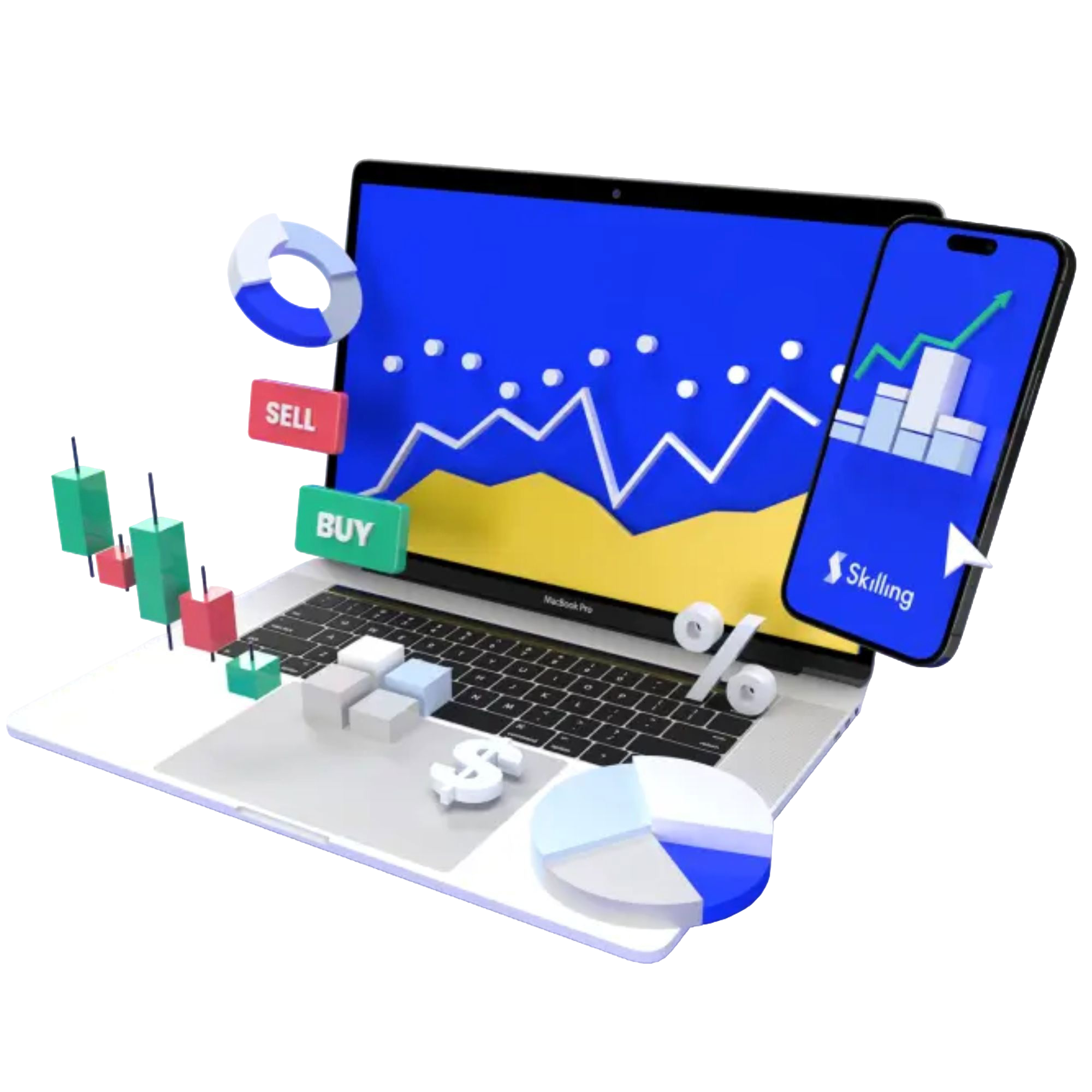You've probably heard of public companies, but what exactly are they and how are they formed? Simply put, these are businesses that sell parts of themselves to the public through shares. Let's delve into what makes them tick and why they're important.
Practice with a Demo Account
Try our demo account and experience real market conditions.
71% of retail CFD accounts lose money.

What are public companies?
Public companies are businesses that sell shares of their ownership to the public. When you buy shares of a public company, you become a part-owner of that company. These companies are listed on stock exchanges, where their shares can be bought and sold by anyone interested. Being public allows companies to raise funds from investors to grow and expand their business. It also means they have to follow certain rules and regulations set by the government to protect shareholders' interests.
How do companies go public?
When a company decides to go public, it means they want to sell shares of their ownership to the public for the first time. Here's how they do it:
- Preparation: The company prepares for the initial public offering (IPO) by getting everything in order. This includes deciding how many shares to sell, determining the price, and working with financial experts and underwriters.
- Preparation of mandatory documents: The company creates important documents required for the IPO, such as a prospectus. This document contains detailed information about the company's finances, operations, risks, and future plans. It helps potential investors make informed decisions about whether to buy shares.
- Review of financial statements: Before going public, the company's financial statements undergo a thorough review. This ensures that they are accurate and comply with regulatory standards. Potential investors rely on these statements to assess the company's financial health and performance.
Once these steps are completed, the company is ready to launch its IPO. During the IPO, shares are offered to investors through an underwriting process, and once the shares are sold, the company becomes publicly traded on a stock exchange. This allows anyone to buy and sell shares of the company, and the company can use the funds raised from the IPO to grow and expand its business.
Capitalise on volatility in share markets
Take a position on moving share prices. Never miss an opportunity.
71% of retail CFD accounts lose money.

Examples of public companies
NVIDIA
- Founded: April 1993
- Description: NVIDIA is a technology company known for its graphics processing units (GPUs) and semiconductor products. It is a leading provider of GPUs for gaming, professional visualization, data centers, and artificial intelligence (AI) applications.
Apple
- Founded: April 1976
- Description: Apple is a multinational technology company known for its consumer electronics, software, and services. It is famous for products such as the iPhone, iPad, Mac computers, and Apple Watch, as well as its software platforms like iOS and macOS.
Amazon
- Founded: July 1994
- Description: Amazon is a multinational technology and e-commerce company known for its vast online marketplace, cloud computing services (Amazon Web Services), digital streaming (Amazon Prime Video), and artificial intelligence (Amazon Alexa). It is one of the largest and most influential companies in the world.
Tesla
- Founded: July 2003
- Description: Tesla is an electric vehicle (EV) and clean energy company known for its innovative approach to automotive design and sustainable energy solutions. It produces electric cars, solar energy products (such as solar panels and batteries), and energy storage solutions. Tesla is led by entrepreneur Elon Musk and has disrupted the automotive industry with its focus on electric vehicles and autonomous driving technology.
How to trade public companies shares online - steps
With the Skilling trading platform, you can trade hundreds of global public company shares online in the form of Contracts for Difference (CFDs). CFDs are essentially derivatives that allow traders to speculate on the price movements of underlying assets, such as public company shares, Gold price - XAUUSD, coffee price, etc. without owning the assets themselves. Please note that past performance is not indicative of future results. Trading CFDs involves significant risk of loss, and it is possible to lose more than your initial investment. Ensure you fully understand the risks and seek independent advice if necessary.
With CFDs, traders could profit or incur a loss from both rising and falling markets by entering into contracts to buy (go long) or sell (go short) based on their market predictions. This trading method offers flexibility, leverage and the ability to trade on margin, but it also involves risks such as leverage amplifying losses. Here are the steps to get started:
- Sign up and verify your account on the Skilling platform.
- Deposit funds into your trading account using a preferred payment method.
- Research public companies and choose the shares you want to trade.
- Select the desired number of shares and decide whether to buy or sell (long or short).
- Set stop-loss and take-profit levels to manage risk.
- Place your trade and monitor it using Skilling's platform.
- Close your trade when you're ready to exit, either taking profits or cutting losses.
- Withdraw any profits or remaining funds from your Skilling account.
Summary
While investing in public companies could offer opportunities for growth and gains, it also carries risks. It's important to conduct thorough research, understand the market, and consider your risk tolerance before investing or trading. It’s also important to note that trading CFDs involves a significant risk of loss and may not be suitable for all investors. Past performance is not indicative of future results. Before trading, carefully consider your financial situation and level of experience. Seek advice from a qualified financial advisor if necessary.











